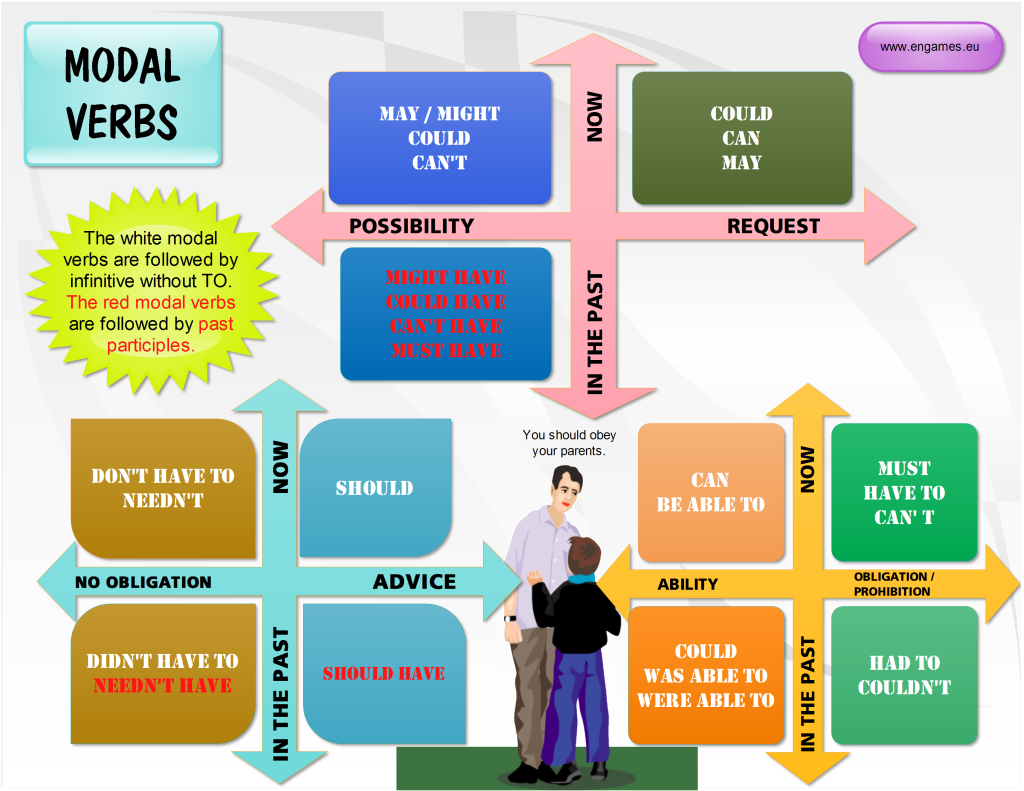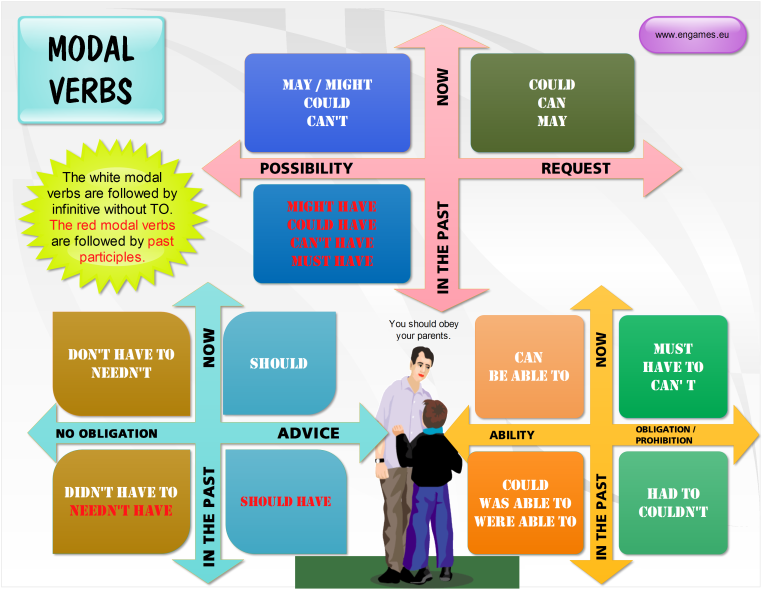12
Apr.2014
8 Comments
Students usually understand the usage of the modals in present tense very quickly. However, when they start speaking about the past, they use the present tense or some non-existent forms, like “musted”.
Here I’ve tried to create a simple overview of all the modal verbs and their usage in present and past tenses. I hope you will find it at least a bit useful.
Modal verbs – mind map
ADVERT:
[showmyads]

Modal verbs – games
English Learning Magazine
Or you could practise the names of the plants in a post which contains the video with the names of the plants and three tests. Moreover, you can listen to a song and complete its lyrics.
The whole site is mobile phones friendly (unlike this one, where the games play only on desktops).
Enjoy.
(Visited 1,474 times, 1 visits today)
Category: English games, Grammar, Intermediate
Tags: games, Grammar, modal verbs
Leave a comment
This site uses Akismet to reduce spam. Learn how your comment data is processed.


8 Comments